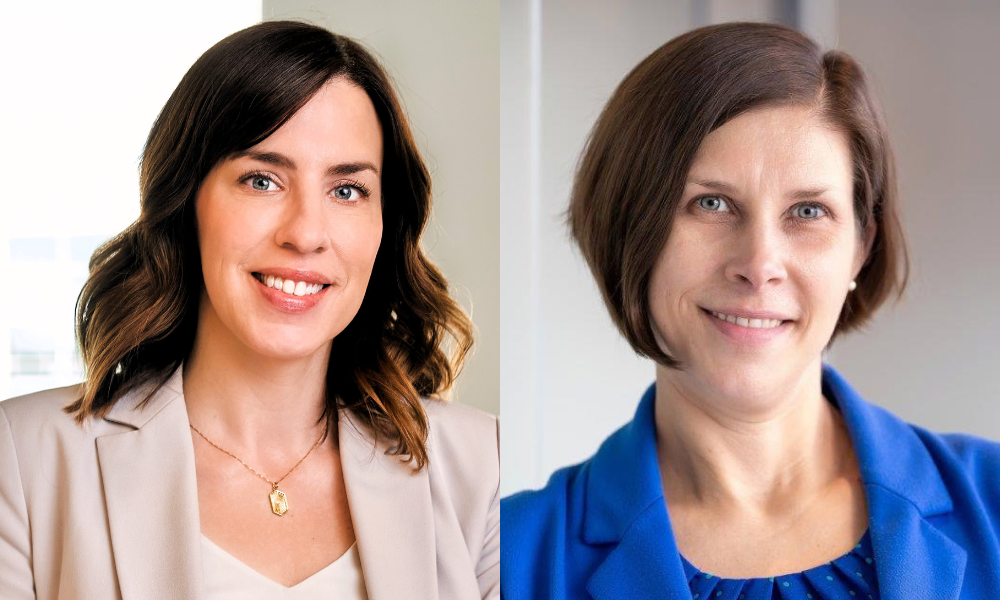Sun Life and Canada Life give insight into what this generation wants from their employer

The life of a millennial and even family life is vastly different compared to 40 years ago. Working age Canadians are faced with several challenges. For example, traditional family units are not as prevalent, and the incidence of disease is also different. Technology has changed, work/life balance has changed, the environment around us has changed and so has our health.
Shelley Sjoberg, assistant vice president of product development and support at Canada Life, says Canadians’ views of what constitutes achieving wellbeing and finding the right support systems has also shifted.
“Supports [that help] navigate a healthcare system or achieving access to different healthcare practitioners, supports that provide information in a digestible and ‘at your fingertips’ way, or getting a sleek digital experience, are crucial in today's environment because of the way that our lives are different,” she says.
She believes employers and companies alike can “look beyond traditional approaches” and reframe their solutions to meet these changed needs. She points to the stigma around mental health, which she attests everyone in Canada has worked “really hard” to reduce. This means more Canadians, especially millennials and Gen Zs, will be empowered to look for the appropriate healthcare supports that they need.
“Mental health has been top of mind for Canadians for a really long time, but we know that the incidence of mental health is fundamentally different in younger populations,” she explains. “We have to think differently about the challenges that the working age population, in particular, millennials and Gen Z, face today. What kind of support can we come to the table with?”
Those challenges also extend to employers as they’ll need to adapt to the new generation’s needs and wants. Gone are the days of a one-size-fits-all approaches. Today's millennials are seeking personalized, flexible support that aligns with their diverse lifestyles and priorities. In order to meet that support, it’s important employers are also engaging and listening with their employees, says Nicole Montpetit, vice president of Total Rewards at Sun Life Canada.
“Employee listening is first and foremost, really key,” she says, highlighting that Sun Life surveys their employees on a regular basis, the last one focused on wellbeing. “It's been widely known that people utilize programs differently. For our millennials, we asked them in the last six months, have you had time away from work – a day or more - to support your mental health? Millennials are more likely to have reported taking time off to support their mental health. They’re proactively supporting themselves for what they need.”
If you're looking for support, find out what benefits peer support workers bring to the workplace in this article.
Sjoberg also suggests that employers take time to get to know their millennial employees, by “really connecting” with them. This helps to understand the kinds of unique needs that they may have. “To connect with them, ask them more about their lives,” she suggests. “In order to create a culture of people being willing to share more about themselves, you have to demonstrate that you're taking that information, being a good steward of it, and using it to enrich your workplace.”
When employers collect that information and know who is working within their organization, what their cultural background is, what their family arrangements look like and what their interests are, that information can be used to tailor how employers connect with their millennials.
One of the key offerings Sun Life started last year were "Care Days.” Montpetit explains with these care days, employees are provided up to five paid days off annually, which can be used for personal priorities, including self-care, community service, or emergencies. This flexible time off appeals especially to millennials, who are often driven by purpose and the desire to give back to their communities.
Sun Life also offers a unique sabbatical program, allowing employees to take up to six weeks off every five years, reflecting their service anniversary. This program has seen significant uptake among millennials, with 67 per cent of those eligible in 2023 choosing to take advantage of the benefit, compared to lower participation rates among Gen X and baby boomers at 56 per cent.
Millennials are also looking at ensuring their financial security as they consider financial wellbeing a significant factor in benefits offerings. That’s why Sun Life changed their employee stock ownership plan, adding and increasing the flexibility so that employees can direct their stock ownership and company match for the program to a TFSA, an RRSP and repayment of a student loan help them build the savings habit. Montpetit also says Sun Life removed any waiting period so new employees can join right away when they join Sun Life.
“I think it’s very progressive,” she remarked. “Different people have different needs for their finances at different stages of their life. We’re meeting our employees where they're at. They could be focused on debt repayment. They could be focused on a down payment for a place to live. They could be building up their emergency savings, or maybe they're just saving for a rainy day or possibly retirement.”
Ultimately, Sjoberg believes millennials want to work for an inclusive workplace and want to feel fulfilled. As she says, “a job is not just a job, it's not just a paycheck. You spend a long amount of time there and at the end of the day, you want to go home and feel like you've contributed to something, you've grown personally, and you've built a community. Workplaces that support being able to do that are going to be vibrant, and they're going to have engagement with their employees, whether those are millennials or otherwise.”



